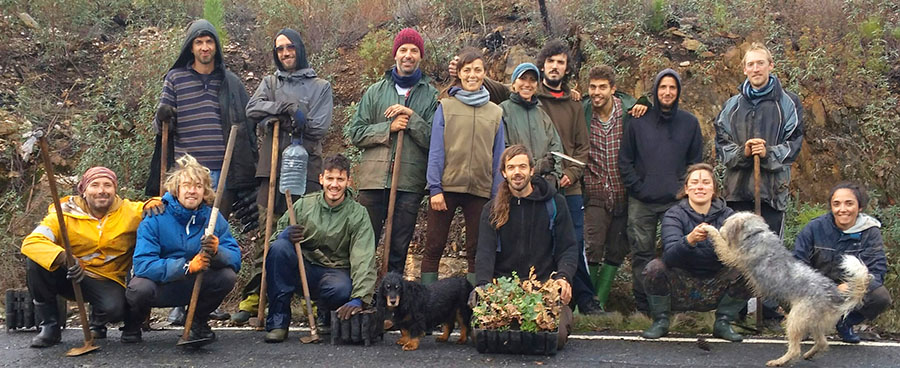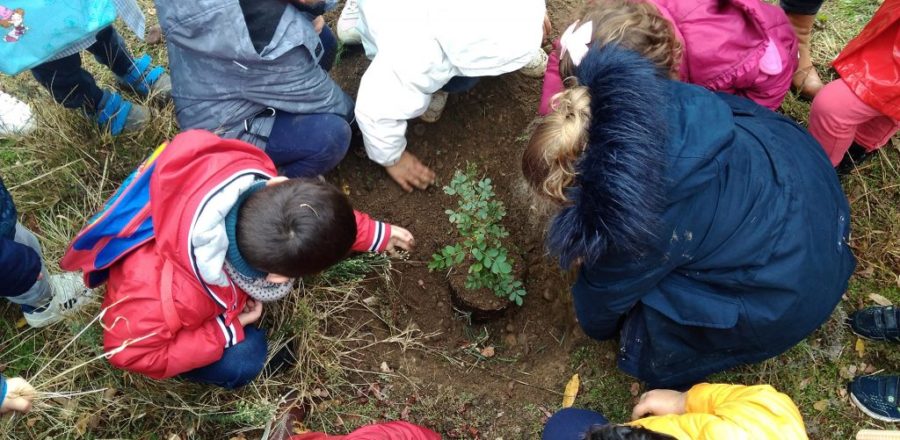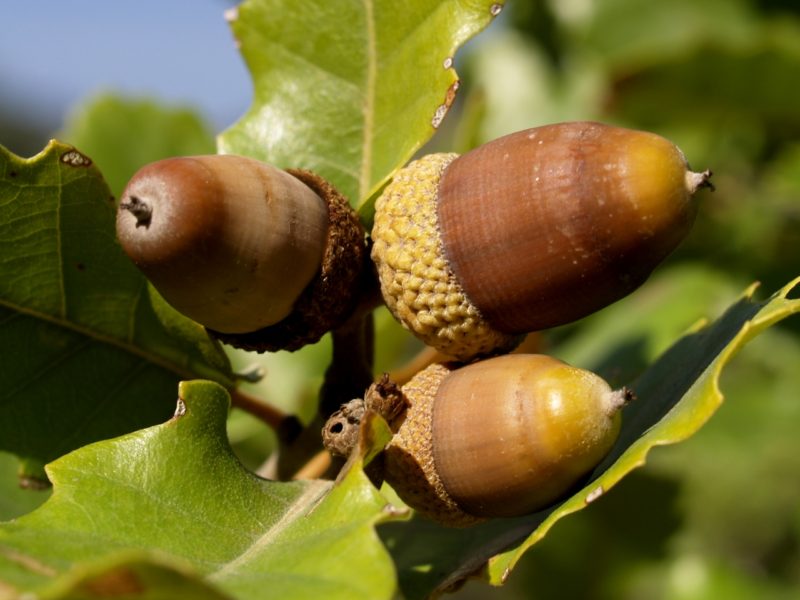In Med-O-Med, we support this beautiful initiative launched by Bonqui R. Ibarrondo, member of Reforest-Acción, and his team. We tell you all about it in this interview, originally published by ruralpedia.es.
In Ruralpedia, we are always looking for interesting issues that affect Spain’s rural world. For this reason, we have fallen in love with the Great Iberian Acorn project (la Gran Bellotada Ibérica). This initiative has been promoted by Bongui R. Ibarronfo, member of Reforest-Acción and coordinator of a reforestation project in the Sierra de Gata, in Caceres (Spain), where he has planted 200,000 trees in the last 3 years.
Its goal is clear: we have to reach the whole Iberian Peninsula to fight the deforestation. And he will do so with the launching of this initiative that began in October 1st, and will last until March 1st, 2020, and through which he intends to plant 25 million acorns across all of Spain and Portugal.

But he doesn’t want to do it alone. He wants everyone to take part in this challenge, providing them the tools to do it, through this interesting Acorn Guide. With actions taking promoted across all of the Peninsula, the Great Iberian Acorn aims at creating a citizen network to fight against climate change and stop desertification by promoting the recovery of its forests.
Ruralpedia: Why did you launch the the project The Great Iberian Acorn?
Bongui R. Ibarrondo: The project comes from the need to fight the growing desertification we are facing. We have acorns, a seed very well adapted to the Mediterranean climate, and a weapon to prevent desertification.
At the same time, acorns are a species very easy to work with. You have to collect it and plant it at the proper time. For this purpose, we have created the Acorn Guide, in order to help the people that wants to get involved, so they don’t have problems to plant their acorn trees.
R: Who is behind this important challenge?
BRI: Obviously, many people have realized the importance of this initiatives, although not many are taking actions. In Reforest-Action, we contacted many people, and currently have more than 1,000 volunteers. We are committed to do everything in our hand, and to compensate all the destruction humans are creating.
Reforest-Acción is an international association that works in reforestation. But with the Great Iberian Acorn we want to extend this responsibility, turning it into a two-nation collective issue. We are very happy because many associations and individual people are getting involved.
We want to create a network to help us in the call for action against desertification.
R: Which tree species are included in this challenge?
BRI: All species of Quercus: oak trees, holm oak, cork trees, gall oaks… In the Acorn Guide, we include all the species that can participate in this initiative.
R: How can everyone participate in this initiative? How can they get involved?
BRI: It’s simple. You just need to visit our website, where we explain the goals of the project. There is a button “Participa” (Collaborate), where we explain how to collect, keep and plant acorns, in addition to instructions on where and with whom you need to contact to participate in these actions.
In addition to this, we are creating a network of activists that are collaborating in different places of the Iberian Peninsula. We will publish an interactive map shortly with all the information. There are currently 70 associations across the Peninsula.

R: What has been the response of society? And of institutions?
BRI: For now, there hasn’t been an institutional response, although we are just getting started. The truth is the phone hasn’t stopped ringing with messages and emails from people interested. Also, many people are sharing it in social networks, and the initiative has been very endorsed, even though we have only been working for 2 or 3 days. But it is beginning to grow and we expect a lot of participation.
R: We are witnessing an increase in this kind of collective actions to solve problems that should be tackled by politicians, are these type of social actions so important to achieve changes?
BRI: Yes, they are essential. The problem with politics and this country is that, often, they develop under the shadow of big corporations, which are the ones that pay for the political campaigns, and the ones that are destroying our forests.
Of course, we need to exert pressure for things to be done, but we also have to participate in the process. You can’t just stay at home watching TV and waiting for problems to be solved. We need to get organized. Society needs to be the driving force and we need to be aware of the importance of acting together to achieve changes.
Read the full interview here (in Spanish).
This post is available in: English Español

